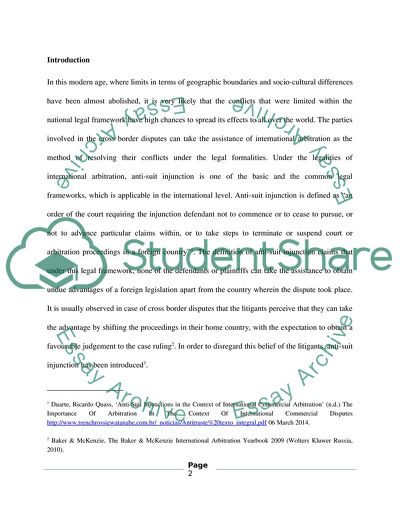Cite this document
(“European Court of Justice Turner v Grovit and Harada Essay”, n.d.)
Retrieved from https://studentshare.org/law/1632094-anti-suit-injunctions-have-been-seen-as-interference-with-a-dispute-in-a-foreign-court-european-court-of-justice-turner-v-grovit-and-harada-ltd-discuss
Retrieved from https://studentshare.org/law/1632094-anti-suit-injunctions-have-been-seen-as-interference-with-a-dispute-in-a-foreign-court-european-court-of-justice-turner-v-grovit-and-harada-ltd-discuss
(European Court of Justice Turner V Grovit and Harada Essay)
https://studentshare.org/law/1632094-anti-suit-injunctions-have-been-seen-as-interference-with-a-dispute-in-a-foreign-court-european-court-of-justice-turner-v-grovit-and-harada-ltd-discuss.
https://studentshare.org/law/1632094-anti-suit-injunctions-have-been-seen-as-interference-with-a-dispute-in-a-foreign-court-european-court-of-justice-turner-v-grovit-and-harada-ltd-discuss.
“European Court of Justice Turner V Grovit and Harada Essay”, n.d. https://studentshare.org/law/1632094-anti-suit-injunctions-have-been-seen-as-interference-with-a-dispute-in-a-foreign-court-european-court-of-justice-turner-v-grovit-and-harada-ltd-discuss.


